Filter by
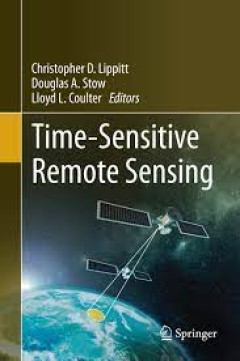
Time-Sensitive Remote Sensing
This book documents the state of the art in the use of remote sensing to address time-sensitive information requirements. Specifically, it brings together a group of authors who are both researchers and practitioners, who work toward or are currently using remote sensing to address time-sensitive information requirements with the goal of advancing the effective use of remote sensing to supply t…
- Edition
- -
- ISBN/ISSN
- 978-1-4939-2602-2
- Collation
- -
- Series Title
- -
- Call Number
- -

Applied Environmental Biotechnology: Present Scenario and Future Trends
Applied Environmental Biotechnology: Present Scenario and Future Trends is designed to serve as a reference book for students and researchers working in the area of applied environmental science. It presents various applications of environmental studies that involve the use of living organisms, bioprocesses engineering technology, and other fields in solving environmental problems like waste an…
- Edition
- Ed. 1
- ISBN/ISSN
- 978-81-322-2123-4
- Collation
- XVI, 167
- Series Title
- -
- Call Number
- 628 APP a
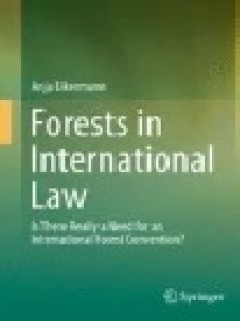
Forests in International Law
This book investigates the potential need for an international convention on forests and establishes a multifunctional concept of forests as a cornerstone for international forest regulation. Accordingly, it examines a variety of international instruments pertaining directly or indirectly to forests and explores their entangled, fragmented nature. While contending that the lack of consistency i…
- Edition
- -
- ISBN/ISSN
- 978-3-319-14950-9
- Collation
- X, 196 hlm.
- Series Title
- -
- Call Number
- -

Food Waste and Sustainable Food Waste Management in the Baltic Sea Region
This work presents the findings of an extensive study on the state-of-the-art regarding the problem of food waste in Belarus, Estonia, Germany, Latvia, Lithuania, Poland and Sweden. The results show that the problem of food waste can be found at different levels in each country and that our knowledge of it is limited by the current lack of studies in the area. The problem is primarily due to fo…
- Edition
- -
- ISBN/ISSN
- 978-3-319-10906-0
- Collation
- XII, 222 hlm.
- Series Title
- Environmental Science and Engineering
- Call Number
- -
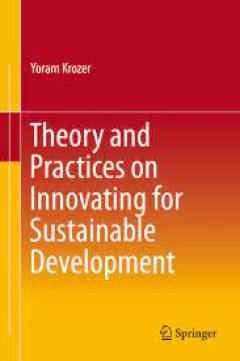
Theory and Practices on Innovating for Sustainable Development
This book explains how income growth and better environmental qualities go hand in hand, and reviews the drivers and barriers to sustainable innovation on the basis of real-life cases. It discusses why innovation-based income growth reduces environmental impacts and how the huge global markets for sustainable innovation are currently hampered by protectionist policies. Subsequently, diverse sus…
- Edition
- -
- ISBN/ISSN
- 978-3-319-18636-8
- Collation
- -
- Series Title
- -
- Call Number
- -

The Twin Sister Planets Venus and Earth Why are they so different
This book explains how it came to be that Venus and Earth, while very similar in chemical composition, zonation, size and heliocentric distance from the Sun, are very different in surface environmental conditions. It is argued here that these differences can be accounted for by planetoid capture processes and the subsequent evolution of the planet-satellite system. Venus captured a one-half moo…
- Edition
- -
- ISBN/ISSN
- 978-3-319-11388-3
- Collation
- -
- Series Title
- -
- Call Number
- -
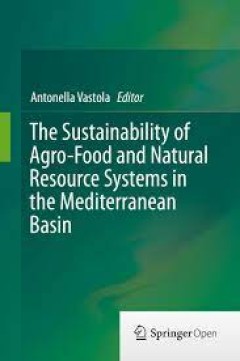
The Sustainability of Agro-Food and Natural Resource Systems in the Mediterra…
This book is focused on the challenges to implement sustainability in diverse contexts such as agribusiness, natural resource systems and new technologies. The experiences made by the researchers of the School of Agricultural, Forestry, Food and Environmental Science (SAFE) of the University of Basilicata offer a wide and multidisciplinary approach to the identification and testing of differ…
- Edition
- -
- ISBN/ISSN
- 978-3-319-16357-4
- Collation
- -
- Series Title
- -
- Call Number
- -

The Sugarcane Complex in Brazil The Role of Innovation in a Dynamic Sector o…
This book offers an in-depth analysis of the Brazilian sugarcane complex with a special focus on technological advances that promote sustainable development. It first examines the question why sugarcane-based ethanol from Brazil is considered a superior alternative to fossil fuel compared to other biofuels produced on an industrial scale and subsequently analyzes the most dynamic areas within t…
- Edition
- -
- ISBN/ISSN
- 978-3-319-16583-7
- Collation
- -
- Series Title
- -
- Call Number
- -
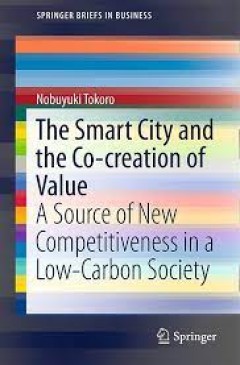
The Smart City and the Co-creation of Value A Source of New Competitiveness …
The original point that differentiates this text from otherwise similar texts is that it looks at the building of smart cities from the viewpoint of an interchange of knowledge among companies in different industries, or “Ba” as shared context in motion, and emphasizes that the resulting value becomes a source of new corporate competitive advantage. In recent years numerous publications …
- Edition
- -
- ISBN/ISSN
- 978-4-431-55846-0
- Collation
- -
- Series Title
- -
- Call Number
- -
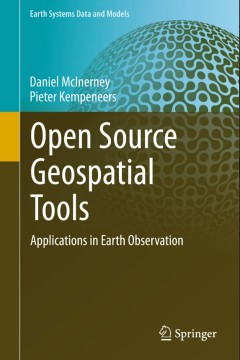
Open Source Geospatial Tools:Applications in Earth Observation
This book focuses on the use of open source software for geospatial analysis. It demonstrates the effectiveness of the command line interface for handling both vector, raster and 3D geospatial data. Appropriate open-source tools for data processing are clearly explained and discusses how they can be used to solve everyday tasks.A series of fully worked case studies are presented including vecto…
- Edition
- 1
- ISBN/ISSN
- 978-3-319-01823-2
- Collation
- XXVII, 358
- Series Title
- Earth Systems Data and Models
- Call Number
- -
 Computer Science, Information & General Works
Computer Science, Information & General Works  Philosophy & Psychology
Philosophy & Psychology  Religion
Religion  Social Sciences
Social Sciences  Language
Language  Pure Science
Pure Science  Applied Sciences
Applied Sciences  Art & Recreation
Art & Recreation  Literature
Literature  History & Geography
History & Geography